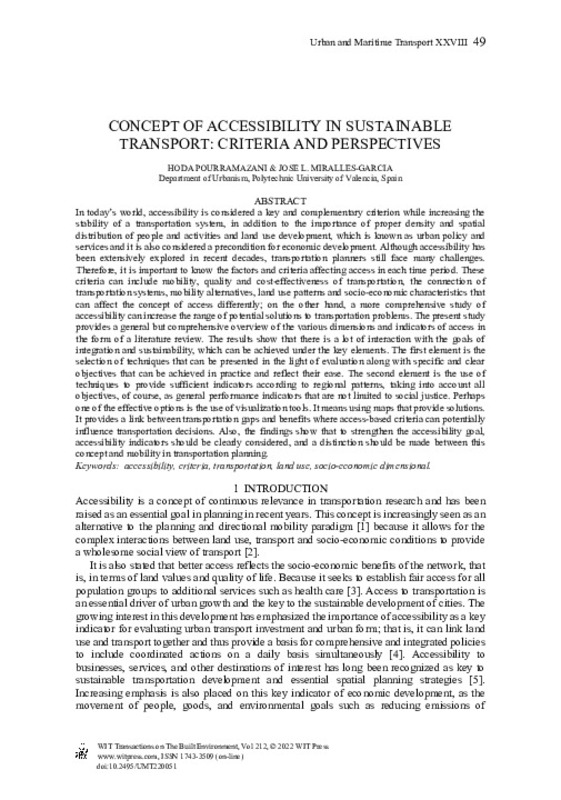|
Resumen:
|
[EN] In today's world, accessibility is considered a key and complementary criterion while increasing the stability of a transportation system, in addition to the importance of proper density and spatial distribution of ...[+]
[EN] In today's world, accessibility is considered a key and complementary criterion while increasing the stability of a transportation system, in addition to the importance of proper density and spatial distribution of people and activities and land use development, which is known as urban policy and services and it is also considered a precondition for economic development. Although accessibility has been extensively explored in recent decades, transportation planners still face many challenges. Therefore, it is important to know the factors and criteria affecting access in each time period. These criteria can include mobility, quality and cost-effectiveness of transportation, the connection of transportation systems, mobility alternatives, land use patterns and socio-economic characteristics that can affect the concept of access differently; on the other hand, a more comprehensive study of accessibility can increase the range of potential solutions to transportation problems. The present study provides a general but comprehensive overview of the various dimensions and indicators of access in the form of a literature review. The results show that there is a lot of interaction with the goals of integration and sustainability, which can be achieved under the key elements. The first element is the selection of techniques that can be presented in the light of evaluation along with specific and clear objectives that can be achieved in practice and reflect their ease. The second element is the use of techniques to provide sufficient indicators according to regional patterns, taking into account all objectives, of course, as general performance indicators that are not limited to social justice. Perhaps one of the effective options is the use of visualization tools. It means using maps that provide solutions. It provides a link between transportation gaps and benefits where access-based criteria can potentially influence transportation decisions. Also, the findings show that to strengthen the accessibility goal, accessibility indicators should be clearly considered, and a distinction should be made between this concept and mobility in transportation planning.
[-]
|









